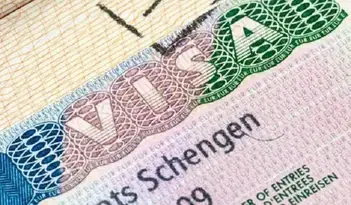Abuja—President Bola Tinubu has urged foreign governments to adopt more flexible visa policies to support Nigerian businesses seeking international expansion. His appeal comes in the wake of the recent visa denial experienced by Nigeria’s Chief of Defence Staff, General Christopher Musa, who was prevented by the Canadian government from attending the Invictus Games for wounded soldiers in Vancouver.
Speaking on the sidelines of the 38th Ordinary Session of the Assembly of African Union Heads of State and Government in Addis Ababa, Ethiopia, over the weekend, President Tinubu emphasized that Nigeria has created a conducive environment for foreign businesses operating within its borders. He stated that it would be fair for other nations to reciprocate by easing visa requirements for Nigerian entrepreneurs and business professionals seeking to establish a presence abroad.
Represented by the Minister of Information and National Orientation, Mohammed Idris, Tinubu stressed the importance of balanced trade and investment policies. Idris highlighted the disparity in trade relations between Nigeria and Indonesia, noting that while over 50 Indonesian companies operate successfully in Nigeria, fewer than five Nigerian businesses have been able to establish themselves in Indonesia.
“This imbalance must be addressed,” the minister said. “If they want to benefit from Nigeria’s large consumer market and investment opportunities, there should be a reciprocal arrangement allowing Nigerian businesses to thrive in their country. The stringent visa processes in places like Indonesia and Ethiopia pose significant challenges, making it difficult for Nigerian businesses to expand globally.”
Idris also addressed concerns from the Nigerian community in Ethiopia regarding the Ethiopian government’s recent decision to cancel e-visa and Visa-on-Arrival options for Nigerian travelers. He described this move as an unfair restriction and assured that the matter would be escalated to the Minister of Foreign Affairs for diplomatic intervention.
“Every international relationship should be based on mutual reciprocity,” he said. “If Nigeria grants Visa-on-Arrival to Ethiopian nationals, then there is no justification for Nigerians to be denied the same privilege. Our government will push for balanced and fair visa policies to ensure Nigerian citizens are treated with the respect they deserve.”
Beyond visa policies, the minister also urged Nigerians abroad to uphold the country’s reputation by being law-abiding and responsible citizens. He emphasized that their conduct plays a significant role in shaping global perceptions about Nigeria.
“We must ensure that those representing Nigeria abroad do so in a way that enhances our global image. While government officials can advocate for improved international relations, it is ultimately the behavior of Nigerians in foreign countries that will shape how we are perceived,” he stated.
Highlighting the achievements of the Tinubu administration, Idris detailed several initiatives aimed at improving Nigeria’s economy, infrastructure, and security. He revealed that Nigeria recently secured $1.07 billion in Foreign Direct Investments (FDIs) to boost the pharmaceutical manufacturing sector. Additionally, under the government’s Student Loan Scheme, over N32 billion has been disbursed in less than 250 days to assist students in need of financial support.
On security, he reported that in 2024 alone, Nigerian forces successfully neutralized over 8,000 terrorists and bandits, rescued 8,000 kidnapped victims, and made more than 11,600 arrests. He also noted significant improvements in security along the Kaduna-Abuja expressway, which has been cleared of criminal activities.
Meanwhile, the President of the Nigerian Community in Ethiopia, Muideen Alimi, discussed plans to collaborate with the Nigerians in Diaspora Commission (NiDCOM) to host a workshop focused on driving economic development through intra-African trade. He further urged the Nigerian government to support the establishment of an African Central Bank and strengthen its role in the African Remittance Agency.
With ongoing diplomatic engagements and economic initiatives, the Nigerian government remains committed to ensuring that local businesses can thrive internationally while fostering stronger economic and diplomatic ties with foreign nations.

